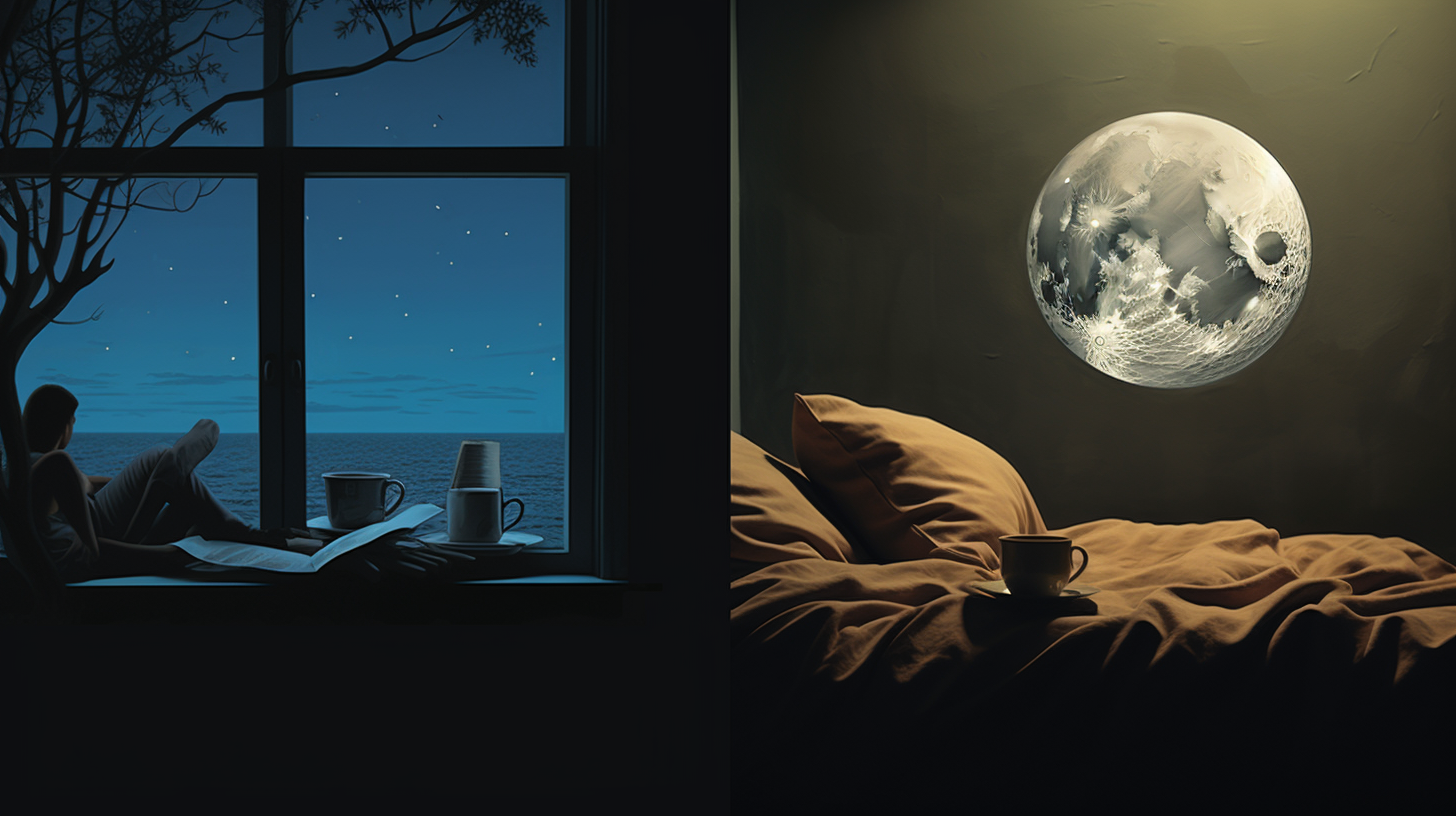You’re struggling to sleep, and you’ve tried everything.
But what about music? It’s not just a mood booster, it can impact your sleep too.
In this article, we’re diving into how music affects sleep, what genres work best, and how to incorporate it into your routine.
So, tune in and let’s discover the soundtrack to your best night’s sleep yet.
Can Listening to Music Help You Sleep Better?
You might be surprised to learn that numerous studies have found listening to music before bed can actually help you get a better night’s sleep. In fact, one study revealed that adults who listened to 45 minutes of calming music before bedtime experienced improved sleep quality from the very first night. Interestingly, this benefit wasn’t a one-off, it had a cumulative effect. The more often participants incorporated music into their nightly routine, the better their sleep quality became.
Moreover, music can help you fall asleep faster. According to a study on women with insomnia symptoms, their sleep onset time dramatically reduced from 27 to 69 minutes to just 6 to 13 minutes simply by playing a self-selected album before bed for ten consecutive nights.
Beyond improving sleep quality and reducing sleep onset time, playing music before bed can enhance sleep efficiency. This means you’ll spend more actual sleep time for every hour you’re in bed, leading to more consistent rest and less disruption from waking up during the night.
What Causes Music to Impact Sleep?
Let’s delve into how music impacts your sleep by triggering physical and emotional responses that promote relaxation and stress reduction.
When your brain interprets the sound waves from music, it sets off a series of physical effects in your body. These effects either directly encourage sleep or reduce issues that hinder it.
Studies suggest that music enhances sleep through its effects on hormone regulation, specifically cortisol, the stress hormone. High levels of cortisol can increase alertness and lead to poor sleep. But when you listen to music, your cortisol levels decrease, helping you to relax and release stress.
Here are the ways music affects your sleep:
Physical Responses:
- Music soothes the autonomic nervous system, leading to slower breathing, lower heart rate, and reduced blood pressure.
- It helps to drown out night-time noise, improving sleep efficiency.
Emotional Responses:
- Music triggers dopamine release, boosting good feelings at bedtime and addressing pain, a common cause of sleep issues.
- The psychological responses to music are effective in reducing both acute and chronic physical pain.
Understanding these responses can guide you towards choosing the right music to enhance your sleep.
What Kind of Music Is Best For Sleep?
Determining the best type of music for sleep can be highly individual, but there are a few general guidelines to consider.
You might find that slower, relaxing music around 60 to 80 beats per minute can help prepare your body for sleep.
Instrumental tracks, nature sounds, or even classical music could be beneficial, but it’s crucial to select sounds that you personally find soothing and calming.
Music Therapy
In the realm of music therapy, it’s important to consider what type of music will coax you into a restful slumber. Certified music therapists can guide you in this journey, utilizing their expertise to create a personalized treatment plan.
Here are a few factors that they consider:
Tempo: Slow, rhythmic music, typically around 60-80 beats per minute, is generally recommended. It aligns with your heart rate as you prepare for sleep.
Genres: Instrumental music, nature sounds, classical, or ambient music are often preferred. Lyrics can engage your mind, making it harder to drift off.
Evolving Science About Music and Health
You’re often told that music can improve your health, but recent research is continually highlighting how it can specifically aid in achieving better sleep. Studies suggest relaxing or slower music, around 60 to 80 beats per minute, can be beneficial. Instrumental music without lyrics is often preferred, but nature sounds or classical tunes can also create a calming atmosphere.
The type of music that works best varies among individuals, so personal preference plays a significant role. To make music part of your sleep hygiene, create a bedtime routine that includes listening to calming music. Experiment with different genres to find what works best for you.
The evolving science about music and health continues to uncover new ways music can contribute to a good night’s sleep.
Top 5 Music for a Goodnight Sleep
If you’re seeking the perfect soundtrack to lull you into a peaceful slumber, consider these top five songs.
‘Weightless’ by Marconi Union, ‘I’m So Tired’ by The Beatles, ‘Only Time’ by Enya, ‘I Need Some Sleep’ by Eels, and ‘Don’t Know Why’ by Norah Jones have been lauded for their sleep-inducing qualities.
Let’s explore each of these soothing tunes and why they’re favored for a good night’s sleep
Weightless – Marconi Union
One of the top five songs for a good night’s sleep is ‘Weightless’ by Marconi Union. This instrumental track is filled with a slow, mesmerizing rhythm that can help you drift off into a peaceful slumber. The continuous beat and slow rhythm suspend you in time, offering a sense of weightlessness. This feature makes it an ideal sound for relaxation and sleep.
To fully enjoy the experience, it is recommended to listen to ‘Weightless’ with headphones. The music video for the song features a drone flying over a pond and valley, enhancing the mesmerizing effect. It can be a visual companion to the audio, providing a complete sensory experience.
Incorporate ‘Weightless’ into your bedtime routine and experience the tranquility it offers.
I’m So Tired – The Beatles
After a long day, you might find yourself struggling to fall asleep, but don’t worry, ‘I’m So Tired’ by The Beatles is a perfect lullaby for those restless nights. Penned by John Lennon during an insomnia-inflicted meditation retreat, this song captures the desperation for peace of mind that only sleep can bring.
The swaying melodies work like a charm to lull your mind into tranquility. Research suggests that music, especially tunes with slower tempos like ‘I’m So Tired’, can help decrease stress levels, promote relaxation, and improve sleep quality.
So, let The Beatles serenade you to sleep with this soothing tune. Remember, incorporating music into your nightly routine can have a cumulative effect on improving sleep efficiency.
Sweet dreams!
Only Time – Enya
You’re halfway through the top 5 list, and now it’s time to drift off with the dreamlike vocals of Enya’s ‘Only Time’. This transportive ballad, with its reverberating vocals, immediately puts you in a dreamlike state. Enya’s song is a gentle reminder about the omniscience of time, reinforcing the notion that only time can answer the present’s questions.
Here’s why it’s perfect for a good night’s sleep:
- The soothing melody relaxes your mind, preparing you for sleep.
- It’s like a musical lullaby for adults.
- The lyrics encourage patience and acceptance.
- It reminds you not to rush fate, which can help reduce anxiety and stress.
I Need Some Sleep – Eels
Next on the list, you’ll find ‘I Need Some Sleep’ by Eels, a song that perfectly captures the struggle of an overactive mind at bedtime. The chiming instrumentation sounds like a hanging mobile, adding a soothing lullaby feel to the song.
While the narrator is clearly tired, he’s struggling to let go of the thoughts keeping him up. This song may resonate with you if you’ve ever been plagued by an overactive mind before bed, making sleep elusive. The lyrics are a poignant reminder of the insomnia many face.
Listening to this song could potentially help you relate, relax, and possibly drift off to sleep, making ‘I Need Some Sleep’ by Eels a worthy addition to your bedtime playlist.
Don’t Know Why – Norah Jones
If you’re seeking a song that combines soothing vocals and reflective lyrics, then Norah Jones’s ‘Don’t Know Why’ might be just what you need for a good night’s sleep. This song, with its soft and full vocals, can comfort you as you drift off to sleep.
- Notable elements of ‘Don’t Know Why’:
- Jones’s voice, which is both soft yet full, adds an element of tension that keeps the song interesting.
- The lyrics grapple with the fear of commitment, a common human emotion, making the song relatable.
‘Don’t Know Why’ is a testament to the power of music not only as entertainment but also as a tool for relaxation and sleep.
Conclusion
So, switch up your bedtime routine tonight. Add some soothing tunes to your playlist and let the magic of music whisk you away to dreamland.
Remember, the key is to choose slow, calming music that resonates with you. With the right music, you’ll not only fall asleep faster but also enjoy a deeper, more restful sleep.
Sweet dreams!
Frequently Asked Questions
You’re asking about popular albums for sleep and relaxation. Consider ‘Sleep’ by Max Richter, ‘Ambient 1: Music for Airports’ by Brian Eno, or ‘Weightless’ by Marconi Union for their calming compositions.
Yes, there’re potential negatives. Listening to stimulating or emotionally charged music before bed might disrupt your sleep. Also, using headphones at high volumes can potentially cause hearing damage. Choose calming music for better results.
Yes, music can aid with sleep disorders like insomnia and sleep apnea. It lowers stress levels, fosters relaxation, and helps you fall asleep quicker. However, you should tailor your music choice to your personal preferences.
You can incorporate music into your child’s bedtime routine by playing calm, soothing tunes or lullabies. Experiment with different genres to see what relaxes them most. Make it a regular part of winding down each night.
Yes, you’ll find many apps and devices designed for sleep-friendly music. Apps like Calm, Noisli, or Pzizz offer a variety of soothing sounds. Devices like white noise machines also provide relaxing soundscapes for better sleep.



